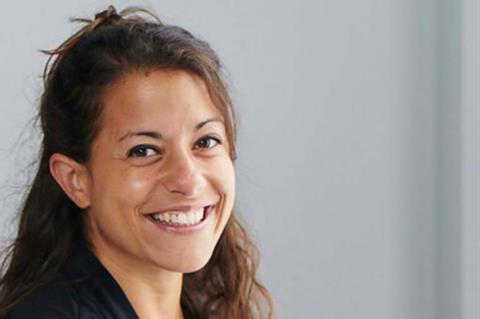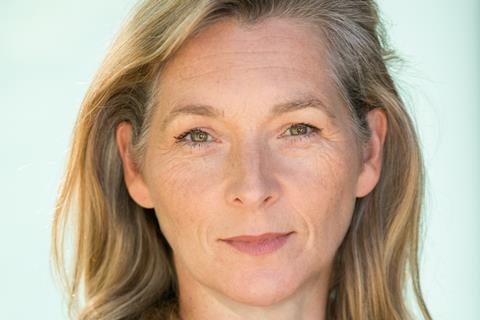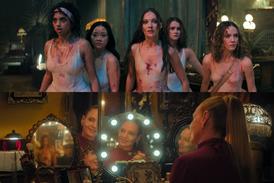Intimacy co-ordinators are calling for improved regulation and standardised training so their role is better understood and embraced on all sets.

Yarit Dor has experienced all the extremes as an intimacy co‑ordinator (IC). “I came off a job that was so collaborative and so informative, to a job in which I was so much of a tick-box that I was put aside to watch everything on a monitor,” she recalls. “I was not able to speak to the cast and the director didn’t want anything to do with me.”
Dor is one of 27 Bectu-accredited intimacy co-ordinators in the UK, with credits including Wicked and Disney+ series Rivals (neither is the difficult set to which she is referring). More than double that number are in training, and more than 100 intimacy co-ordinators work in the US.
“Business is healthy,” agrees Matt Clinch, an IC agent at Lucy Price’s Loop Talent. “There’s loads more opportunities opening up across commercial and music video, as well as in the narrative space.”

But some ICs are concerned a lack of standardisation of the role has left room for under-qualification, inadequate preparation time and a dismissal of their contributions. One key issue is when exactly an IC is brought on board.
“One of the main bugbears we hear from our clients is when a production requests [an IC] for the following week and then everything feels rushed and last minute,” says Clinch. “Most of [an IC’s] work is done before they even step onto a set. There’s paperwork and check-in conversations that need to happen.”
The rush is a consequence of a wider misconception of the role. “Getting people to understand what this role really is, that’s the biggest domino to fall,” says Clinch.
Producers need to set the precedent, adds Dor. “Our work is only truly achievable if leadership sees an IC as an incorporated crew member and head of department.”
ICs, or the lack of one, have featured prominently through awards season. Mikey Madison has said she opted out of using one while filming her role as a sex worker in Sean Baker’s Oscar- and Bafta-nominated Anora, joining a small minority of on-screen talent who have either spoken out against the practice or chosen not to engage with it.
Ita O’Brien, one of the UK’s pioneering ICs and founder of Intimacy On Set, points out the role goes far beyond servicing the actors. “An intimacy co-ordinator supports the whole production,” she explains. “In implementing professional processes and procedures around when working on intimate scenes, we’re protecting the cast and crew, we’re promoting respect and improving the production’s values.”
ICs also bring more practical support, from working with the costume department and co-ordinating with the SFX team to filing risk assessments. “We are there as a producer’s ally,” adds O’Brien.
Mandatory requirement
The many additions to SAG-AFTRA contracts now include the expectation that an IC will be hired for all nude and sexual scenes (Anora shot before the new contract was written). However, while in the UK ICs have been mandatory for BBC productions since 2021, there is no industry-wide stipulation. “I find it shocking each actor can still have their complete say 100%,” says Dor. “They should have a chance to discuss how we work together whilst keeping consent and the safeties we have to, but filmmaking is a business. If you worked in a bank, you wouldn’t be able to opt out of necessary stages of the role.”
Tommy Ross-Williams, Bectu’s chair for the IC branch, believes inclusivity is also underserved in the IC community. “The people who have historically been the faces of the rising intimacy co-ordination movement have, a lot of that time, been white, cis, middle-class, straight women,” says Ross-Williams, who identifies as non-binary.
“It is important, as we grow as an industry, that we’re making sure we are providing opportunities to people from different minority backgrounds to be a part of this community by creating as many access points as possible,” they continue, referring to scholarships and non-London-based training opportunities as two potential areas for growth.

Viable training routes for ICs are now provided by organisations including the National Film and Television School and Moving Body Arts. However, without a standardised qualification, some ICs are entering the industry with online training and minimal on-set experience.
O’Brien, who runs her own vigorous training programme Intimacy On Set, is calling for a minimum of 50 days’ work over five productions to be met before someone can receive full accreditation.
“This role is such a delicate skill,” she says. “Producers and actors have to put a lot of trust in you.”

























No comments yet